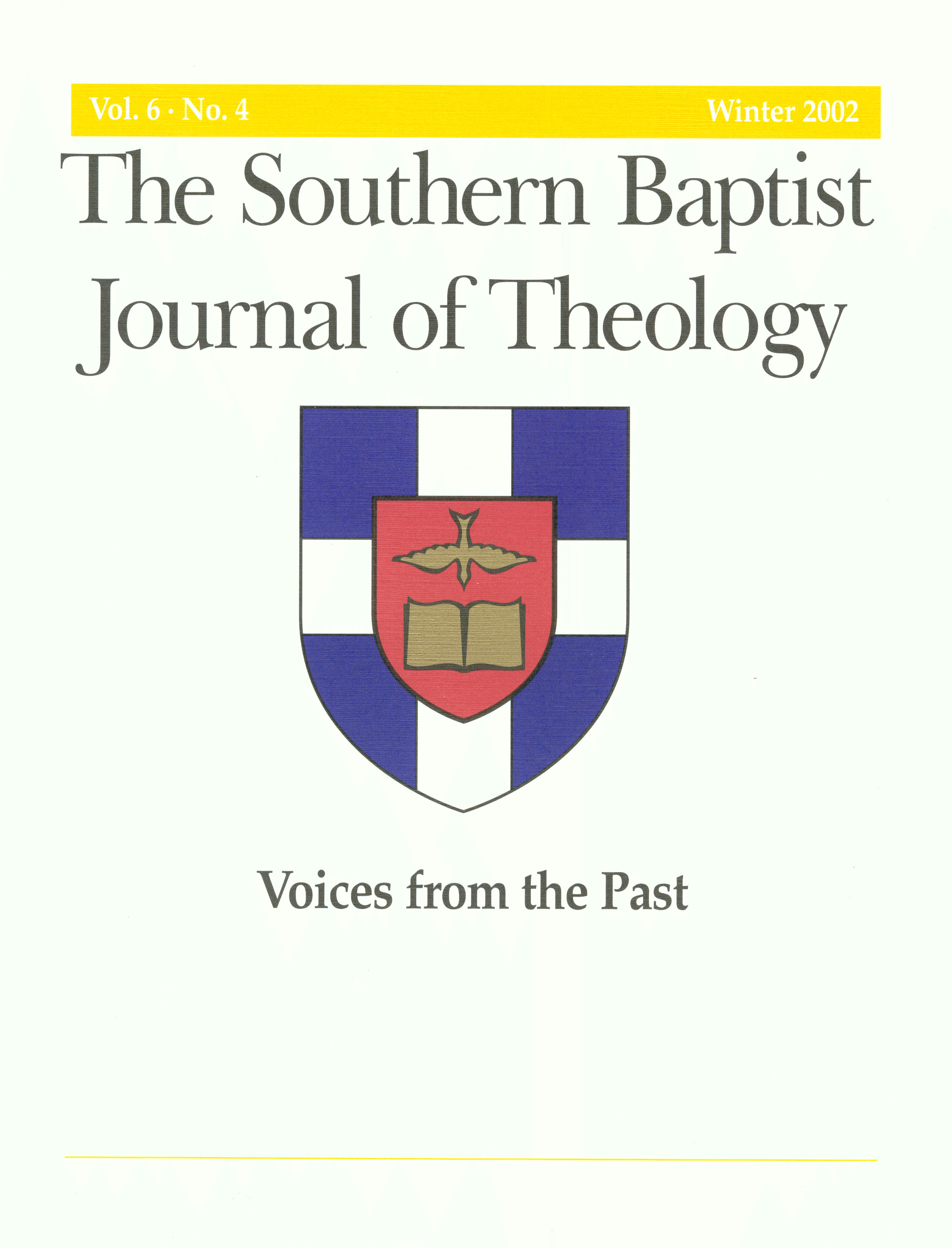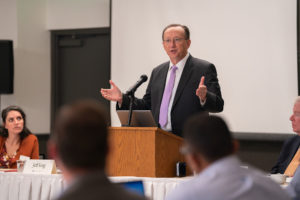
LOUISVILLE, Ky. (BP)–Christians need to hear the voices of Christian history in order to be built up in the faith and to learn about major errors that must be avoided, writers in the winter edition of The Southern Baptist Journal of Theology contend.
The journal, a publication of Southern Baptist Theological Seminary in Louisville, Ky., includes essays on historical Christian leaders penned by theologians D.A. Carson and John Piper as well as Southern Seminary professors Timothy Beougher, Tom Nettles and Mark Terry. It also includes more than 10 book reviews.
Journal editor Thomas R. Schreiner writes the lead editorial.
“We all need models and mentors in the faith,” Schreiner writes. “The Christian life may seem abstract and disconnected from reality unless we see others living it out in practical and concrete ways.
“I have never met a believer who loves Christ passionately who has not been shaped and influenced by at least one other believer. If we have grown as Christians, we can likely point to others who lived out the Christian life in such a way that we were inspired to live in a way that pleases Christ.”
John Piper calls pastors to be men of unshakeable character and overwhelming humility like John Newton, who lived from 1725-1790. The author of perhaps Christianity’s most famous hymn, “Amazing Grace,” Newton was a debauched sailor and slave trader before his conversion. Afterward, he was a devoted husband and beloved pastor in England.
Piper, pastor of Bethlehem Baptist Church in Minneapolis, recounts Newton’s profound metamorphosis from a “sinful wretch” to one ablaze for the glory of God.
“So why am I interested in this man?” Piper writes. “Because one of my great desires is to see Christian pastors be as strong and durable as redwood trees and fragrant as a field of clover — unshakably rugged in the ‘defense and confirmation’ of the truth (Phil 1:7) and relentlessly humble and patient and merciful in dealing with people.”
Nettles writes about John Clifford, a late-19th-century British Baptist minister and leader whose personality far outstripped his theology.
A contemporary of Charles Haddon Spurgeon, Clifford led the British Baptist Union away from historical doctrine by rejecting the inerrancy and infallibility of Scripture and holding to aberrations of other orthodox doctrines.
“The mid-nineteenth century brought a noticeable shift in the thinking of many Baptists,” Nettles writes. “Clifford’s success and popularity, whether a cause or simply an indictor, marked a revolutionary shift in the Baptist self-concept.
“The Baptist Union opted rather for ill-defined doctrine so that external unity might be maintained and chose the path of Clifford rather than that [orthodox path] of Spurgeon.”
Terry gives a seven-year snapshot of the storied life and ministry of missionary Luther Rice, who was born in 1783. Often spoken of alongside the better-known Adoniram Judson, Rice made perhaps a more indelible impact on missions in the early days of Baptist life, Terry notes.
“Writers always link their [Rice and Judson’s] names,” Terry writes. “… They ignore Luther Rice for the more sensational career of Judson. Perhaps their emphasis is natural, but it seems hardly correct.
“It could well be that Rice made the greater contribution to Baptist missions. His indefatigable journeying and heartfelt appeals awakened Baptists to their responsibilities to a world in need. Rice’s career may have been more mundane, but it was no less meaningful.”
Beougher examines the ministry of Puritan pastor Richard Baxter, who lived from 1615-91, commending him as a model of pastoral leadership in evangelism and church growth. Baxter served as pastor in Kidderminster, England, for many years and during his ministry saw virtually the entire town converted.
Beougher points to Baxter’s humble beginnings to show that great leaders often emerge from the most unlikely of circumstances.
“When viewed in light of his later influence, Baxter’s early years were far from auspicious,” Beougher said. “No one could have guessed that this boy, born to Richard and Beatrice Baxter, would amount to much of anything.
“He was forced to live until the age of 10 with his maternal grandfather because of his father’s gambling debts. His early schooling proved a great disappointment. In six years he had four different schoolmasters, all of them ‘ignorant’ or ‘drunkards.'”
–30–
Selected articles from the winter edition of the journal are available online at www.sbts.edu/resources/sbjt.php. (BP) photo posted in the BP Photo Library at http://www.bpnews.net. Photo title: THE SOUTHERN BAPTIST JOURNAL OF THEOLOGY.















